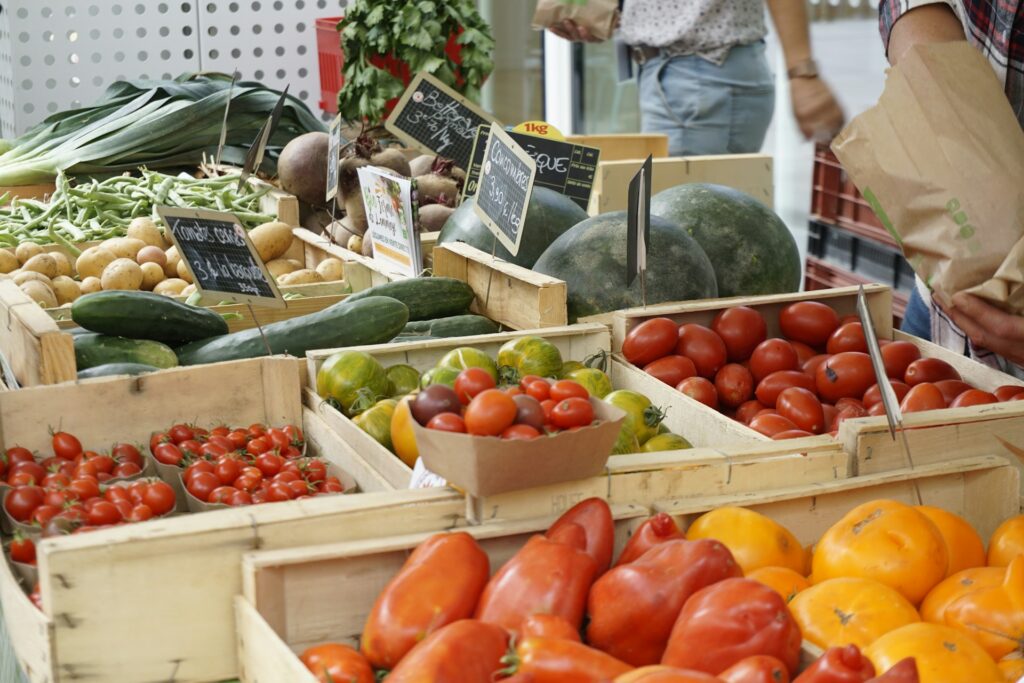Sustainable shopping: who is it worth it for and why doesn’t it replace discount stores?
Environmentally conscious living is no longer just a matter of principle: more and more consumers are looking for sustainable solutions that can be integrated into everyday life. Heat records, droughts, and extreme weather events serve as reminders that our individual choices matter. Alternative consumption models – such as basket communities, community gardens, clothing swaps, and composting programs – offer both environmental and social value. But who chooses these, and why? Pénzcentrum asked Szabina Kerényi, sociologist at the Centre for Social Sciences.
Multiple motivations, diverse backgrounds
 Sustainable consumption movements are driven by many motivations: health consciousness, climate anxiety, caring for the future, and even gastro-hedonism. “There are consumers who do not live extravagantly but are willing to spend more on unique, locally sourced ingredients,” says Kerényi. For them, basket communities are not only a source of products but also an experience: trying new vegetables, spices, and recipes while strengthening community connections.
Sustainable consumption movements are driven by many motivations: health consciousness, climate anxiety, caring for the future, and even gastro-hedonism. “There are consumers who do not live extravagantly but are willing to spend more on unique, locally sourced ingredients,” says Kerényi. For them, basket communities are not only a source of products but also an experience: trying new vegetables, spices, and recipes while strengthening community connections.
A significant group consists of parents of young children – mainly mothers – who, after the birth of their child, start paying more attention to food quality and household waste production. However, sustainable living requires both knowledge and time: higher-educated, better-off groups with more free time can more easily acquire and maintain these practices.
Community and locality
These movements typically operate as informal networks, built on personal recommendations and knowledge sharing. Locality is key: at personal pick-up points, not only products are exchanged, but also experiences and information. Although there is a strong Budapest-focus, basket communities and short food supply chains operate in many rural towns as well – for example, following the model of the Nyíregyháza Basket Community.
Financial constraints and market realities
Although high-quality, chemical-free food pays off in the long run – due to its better nutritional value and health benefits – high inflation and the lower prices of supermarket chains deter many consumers. “Sustainable food consumption in Hungary today is partly a social privilege,” Kerényi notes. Discount chains often offer quality-controlled products at lower prices than farmers’ markets, making it difficult for alternative procurement forms to compete on price.
Loss of knowledge and generational gap
After the consumer boom following the political transition, many households lost their self-sufficiency skills: cooking, preserving, and other forms of food storage. Many young adults today have never learned these skills, so community programs – such as canning workshops and household sustainability courses – are now stepping in to fill the gap.
Digital and community tools
Apps and online platforms promoting sustainability also support awareness-raising: Mi utcánk facilitates neighborhood-level assistance, while 10 millió fa and Önkéntes Vízadó organise local environmental actions. While these are useful, the expert stresses: the key is reducing consumption, not just managing the waste that has already been produced.
International outlook
In Scandinavian countries, sustainability is often part of national identity, yet their ecological footprint is not low – agriculture, oil production, and outsourced manufacturing all increase environmental impact. Across Europe, basket communities and short food supply chains are widespread, relying – much like their Hungarian counterparts – on community, locality, and trust.
Related news
Tork at SIRHA Budapest: hygiene, efficiency and sustainability for the HoReCa sector
🎧 Hallgasd a cikket: Lejátszás Szünet Folytatás Leállítás Nyelv: Auto…
Read more >Related news
Festival buzz at the 60th anniversary EuroShop trade fair
🎧 Hallgasd a cikket: Lejátszás Szünet Folytatás Leállítás Nyelv: Auto…
Read more >No matter how much you save, food and gadgets always take the money
🎧 Hallgasd a cikket: Lejátszás Szünet Folytatás Leállítás Nyelv: Auto…
Read more >Historic price reduction at ALDI
🎧 Hallgasd a cikket: Lejátszás Szünet Folytatás Leállítás Nyelv: Auto…
Read more >








